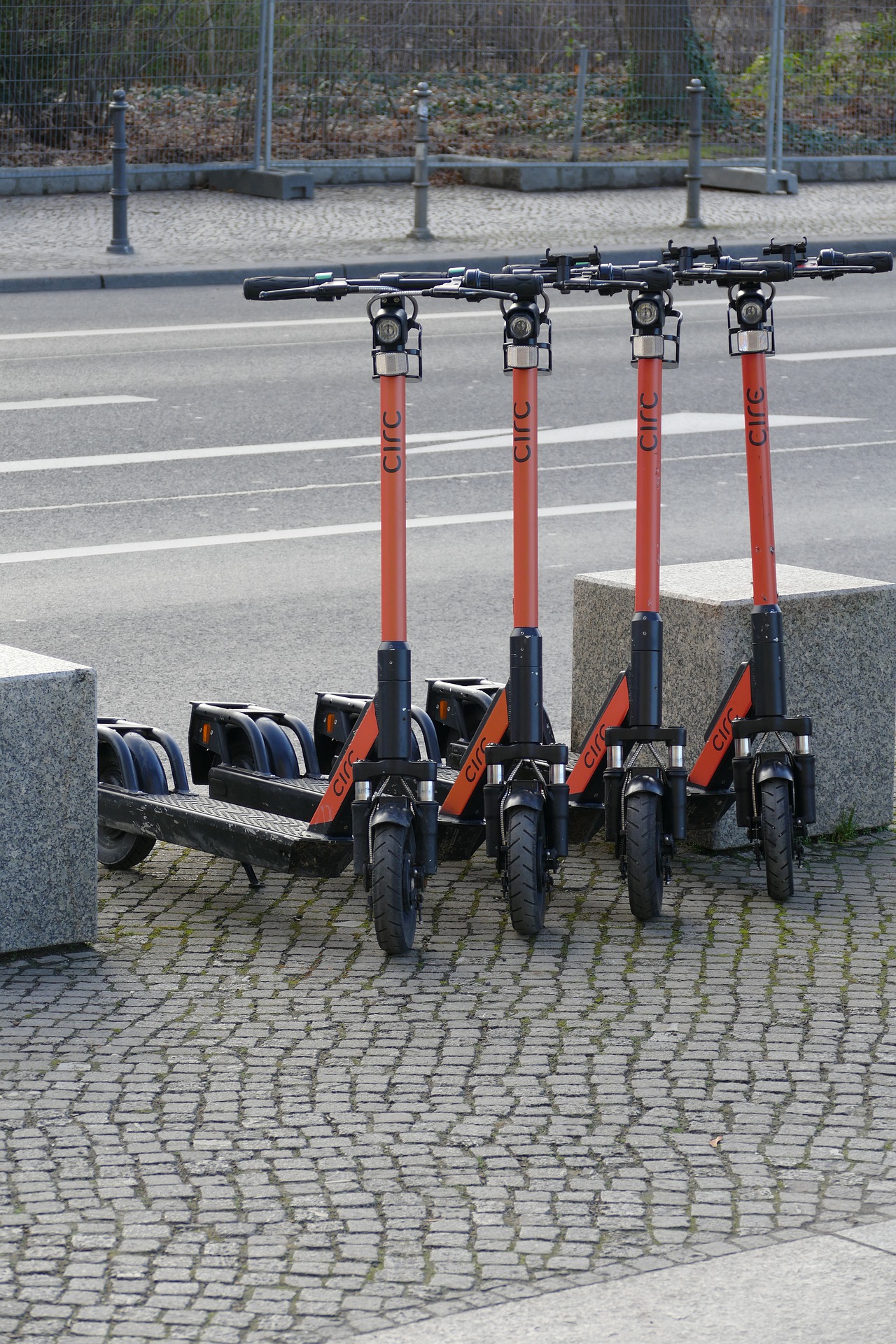In some lighter news from from this week, Link NKY recently reported that the city of Covington in northern Kentucky will not impose a curfew on app-based electric scooters. The scooters, produced primarily by companies Bird and Lime, have become a prominent feature in tri-state metro areas over the past few years. Cincinnati recently imposed a curfew on their use, limiting their operation to hours between 6 a.m. and 6 p.m. New computer programming will prevent people from using them outside of that time frame. City officials cited concerns about safety and crime in their decision.
The scooters themselves have drawn--ahem--mixed opinions from the public. In any case, they illustrate a relatively new business model, one based around the use of paid apps on mobile devices. In order to use a scooter, a person must download the company's app onto their phone, from which they can pay a fee to use the vehicle. E-scooters aren't the only kind of business to use this structure. Today's post will explore some of the ins and outs of app-based businesses.
The Numbers
Crunchbase News, an online tech journalism outlet, analyzed the revenue streams of the Bird company in 2018. The numbers didn't paint a very optimistic picture. At the time, Bird only made about $3.65 in revenue per ride. While this was enough to keep the company growing, it wasn't terribly encouraging for their profit margins. And all that was before the pandemic hit.
In contrast, Tinder, the popular dating app, has shown consistent increases in both its revenue and its user base. So, what gives? What makes one app-based business profitable and another struggling to keep itself afloat?
According to Mobile App Daily, apps that are successful offer unique selling propositions (USPs). This means that they offer services or features that their competitors can't: anyone can create a dating service, but not everyone sports the layout and feature list that makes Tinder such a success.
In addition, one needs--when thinking about any business proposition--to consider the costs of starting and maintaining the business. If we consider the service offered by a dating app, for example, most of the costs will focus around maintaining the technological infrastructure necessary for a wide and geographically dispersed user base. Compare that to something like Bird or Lime, both of which must maintain an IT infrastructure as well as the physical assets people are paying to use. You can see how something like a dating app isn't going to incur the same kind of capital costs as something like an e-scooter company.
Mobile App Daily lists the five most profitable kinds of mobile-apps in descending order: dating, health and fitness, gaming and gambling, music and entertainment and, finally, social media.
Are you looking to get into the app world? Do you have an idea for an app-based business or, alternatively, an app that you think will enhance your current business? Titan Tech can help set up the IT infrastructure to make your business safe, profitable, and scalable. Contact them today for more information.
And join us next week for more tech news.

